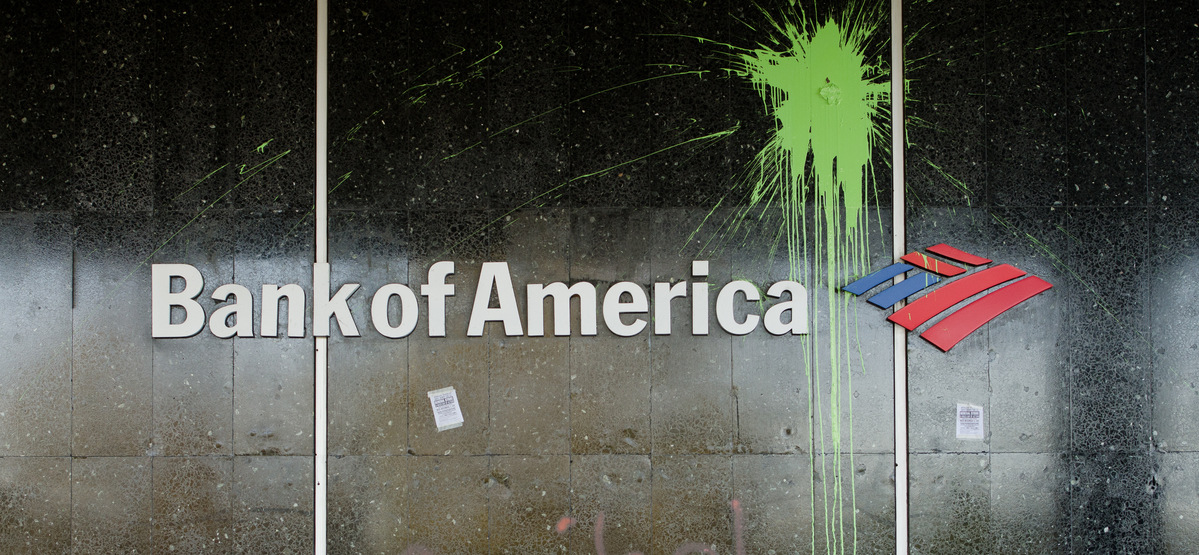The second largest bank by total assets, Bank of America, detailed in an annual report to the SEC that cryptocurrencies pose a threat to their business model.
The bank detailed credit, liquidity, market, geopolitical, and operational risk factors moving into the future, but the threat of cryptocurrencies was a surprising addition to the list. The report touched on the commonly accused threat that cryptocurrencies would “limit [BoA’s] ability to track the movement of funds” and to comply with KYC and AML regulations.
However, the most surprising threat assessment was the realization that crypto could threaten the bank’s overall service business model. BofA outlined that “clients may choose to conduct business with other market participants who engage in business or offer products in areas we deem speculative or risky, such as cryptocurrencies,” which would “negatively affect [BoA’s] earnings by creating pressure to lower prices or credit standard.” Bank of America’s risk assessment sees cryptocurrencies as a competitive threat that ranks alongside other services that offer consumers more attractive products at more attractive prices. While cryptocurrencies may not be like traditional businesses, they are still putting pressure on traditional banks to change their business models to survive.
Competition from banks and cryptocurrencies pressures the other to improve
Bank of America expanded in the report that the adoption of cryptocurrencies “could require substantial expenditures to modify or adapt our existing products and services.” Bank of America has recognized in many words the economically famous phrase penned by Joseph Schumpeter; Creative Destruction. The economist explained how free markets allow for new businesses to develop as they better meet the desires of consumers, while competitors ignore these developments at jeopardy of failure.
The competitive pressure on banks can be seen by Bank of America’s numerous attempts at blockchain patents, along with J.P. Morgan’s attempts. The current banking infrastructure falls behind crypto in numerous categories. Crypto allows users to transfer money within minutes, which currently takes at least 2 days with the current banking system. Crypto charges fees in the pennies as opposed to the billions of dollars that banks stack up annually. Projects like SALT lending will allow users to create a lending ecosystem that grants the structure of bank lending without the associated high fees. Crypto allows anyone to open a checking and savings account within minutes as opposed to required minimum balances and sign up verification processes.
However, banks do have an advantage in that they have a relatively easy on-boarding process when compared to cryptocurrencies. Customers can walk into a bank, talk to a person, and have all the details explain then and there in a simple way. This is a fundamental drawback of decentralized online currencies, however it is being addressed by projects such as the Dash Embassy DACH, a local promotional office for the German-speaking European countries which will offer, among other things, live support, even in-person technical assistance.
Dash aims to provide a smoother experience than a bank
Dash is developing Evolution to not only improve speed and fees even more, but to make Dash extremely user friendly. The Dash Evolution roadmap details the many advances that will allow consumers to easily use Dash, which includes a simple to use mobile wallet.
The Dash governance and treasury system allows for funded projects to educate consumers about Dash in the first world and the third world. This further chips away at the competitive advantage of banks’ simplicity. Dash is uniquely positioned to keep the competitive pressure on banks and other cryptocurrencies by developing and adapting quickly to serve the needs of consumers.
Top Photo | Damage to the front of the Bank of America building in downtown Oakland following a protest. (AP Photo)
Justin Szilard is a writer with a formal background in economics and research from the London School of Economics. He is a fan of cryptocurrency, the potential it holds to help bring about a better economy and society.


